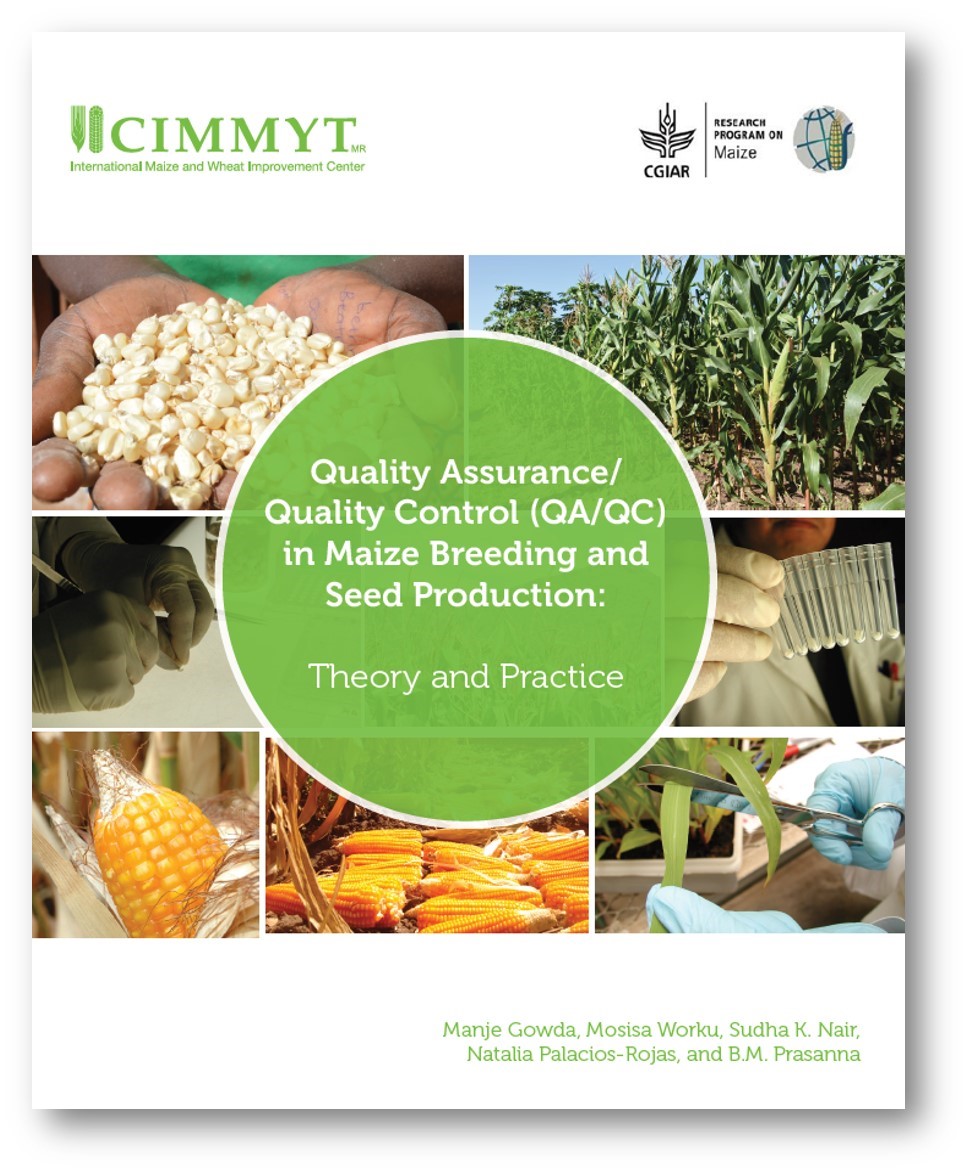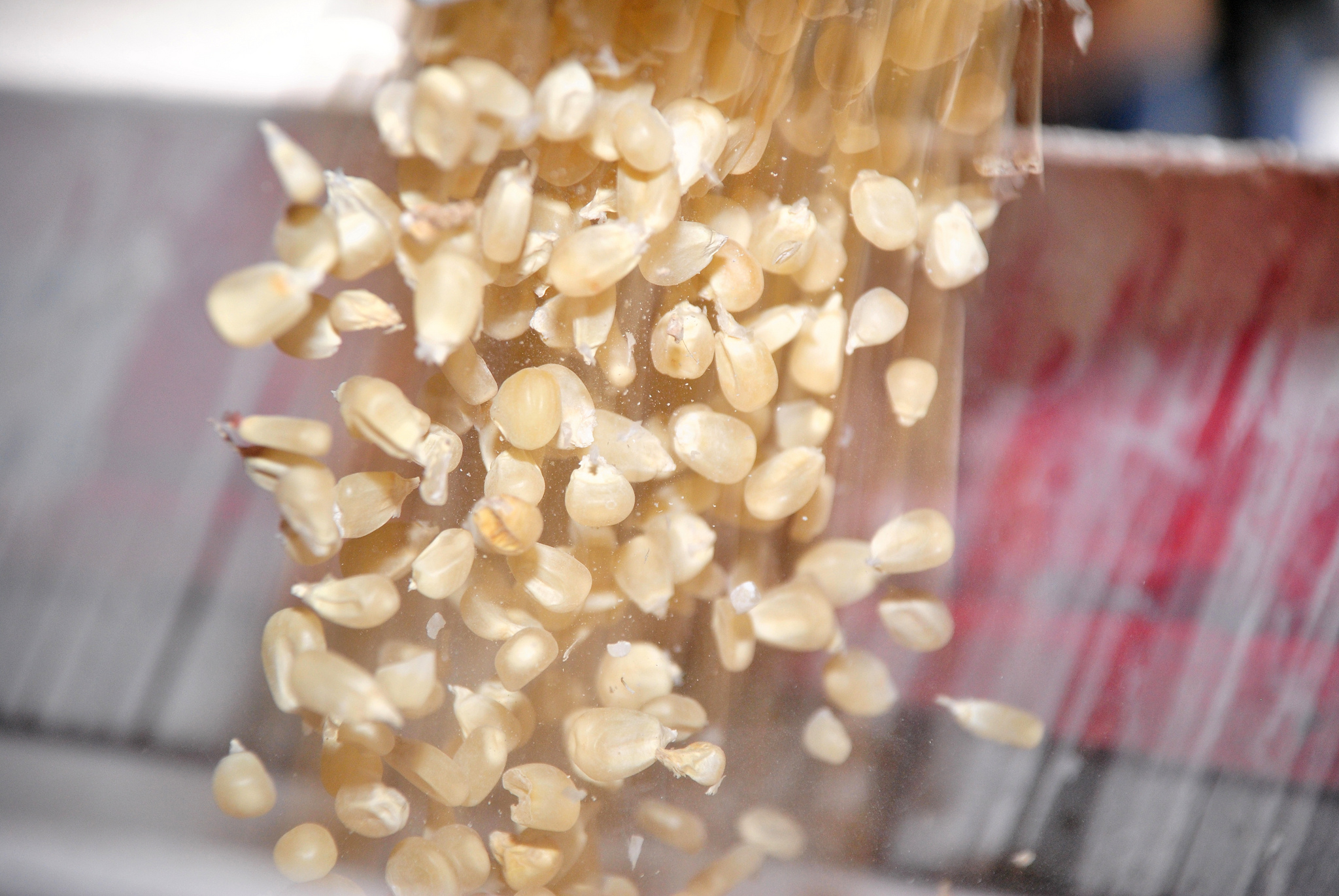
Technical manual to assure seed quality in maize breeding and seed production
by Carolyn Cowan
A new technical manual for Quality Assurance/Quality Control (QA/QC) of seed quality in maize breeding and seed production will help to guarantee the production and distribution of high quality certified seed to farmers and consumers.

“Quality Assurance/Quality Control (QA/QC) in Maize Breeding and Seed Production: Theory and Practice” provides guidance on protocols to effectively guarantee high standards of genetic and physical purity during the maize seed production process and will be of use to both seed companies and seed certification agencies. The International Maize and Wheat Improvement Center (CIMMYT) and the CGIAR Research Program on Maize (MAIZE) jointly produced the manual.
The production and distribution of high quality seed that is genetically and physically pure, viable, vigorous and free from insect-pests and pathogens is integral to the success of the seed distribution business and ultimately to the livelihoods and health of farmers and their communities.
A consistent and rigorous protocol of QA/QC is recommended. The initial step of quality assurance focuses on the prevention of inferior seed mixing, while the incorporation of quality control procedures throughout the seed production chain ensures the identification and correction of possible errors that might have slipped through QA protocols.

Photo credit: X. Fonseca/CIMMYT
Subsequently, the manual outlines the advantages of complementing traditional, morphology-based testing (grow-out test) with molecular marker analysis in the QA/QC process. This combination of physical and genetic testing maximizes the chances of getting high quality seeds in the production chain and also provides additional information on desired agronomic traits — such as MSV and pro-vitamin A — that are present in the seed stock.
The guidance concludes by highlighting the importance of routine molecular marker-based seed tests, espoused as an efficient, cost-effective and reliable method of determining the genetic purity of seeds. As new technology and knowledge continue to advance, the incorporation of emerging innovative techniques into the maize breeding and seed production process will ensure the achievement of highest seed quality.
To read “Quality Assurance/Quality Control (QA/QC) in Maize Breeding and Seed Production: Theory and Practice”, please click here.
Full citation: Gowda, M., Worku, M., Nair, S.K., Palacios-Rojas, N., and Prasanna, B.M. 2017. Quality Assurance/Quality Control (QA/QC) in Maize Breeding and Seed Production: Theory and Practice. CIMMYT: Nairobi.
Guidance, Maize, seed certification, seed sector, seed systems
